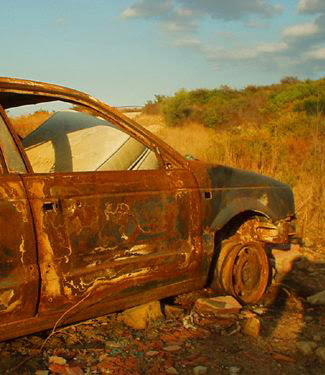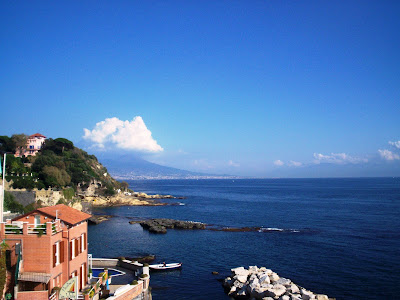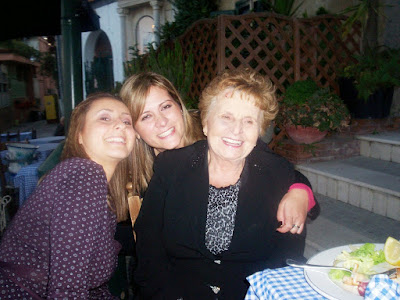 I recently re-watched a beautiful movie called "I Cento Passi" (One Hundred Steps). It reached international acclaim a few years back together with more popular movies about organized crime, a denunciation of Mafia and its effects on the lives of many people who coexist with it. "I cento passi" (one hundred steps) was the distance between the Impastatos' house and the house of Tano Badalamenti, an important Mafia boss, in the small Sicilian town of Cinisi. The movie is the story of Peppino Impastato, a young left-wing activist that in the late seventies (when almost nobody dared to speak about Mafia, and several politicians maintained that Mafia did not even exist) repeatedly denounced Badalamenti crimes and the whole Mafia system using a small local radio station, with the arm of irony. In 1978 Peppino (30 years old) was killed by an explosion. The police archived the case as an accident or a suicide, but his friends never accepted this thesis. Note: This is a true story. More than wenty years after Peppino's death, the case has been re-opened. Tano Badalamenti, meanwhile, has been convicted in USA for drug traffic. I thought again about it this morning, whilst stuck in a traffic-jam caused by an abandoned vehicle on the side of a narrow city road. The car hadn't properly been abandoned by its owners. The car had previously been stolen and, under the owner's refusal to pay money to get it back, the robbers burnt it and left it on the side of the road, a so called unpaid "cavallo di ritorno" (return horse). You see I often wonder what you think about this. As a southern Italian, even if from a rather privileged background, I am aware and accustomed to all these idiosyncrasies. Weird. Weired that one can live so close to injustice, those physical hundred steps that suddenly become conceptual, ideological, moral and back and be accustomed to it.
I recently re-watched a beautiful movie called "I Cento Passi" (One Hundred Steps). It reached international acclaim a few years back together with more popular movies about organized crime, a denunciation of Mafia and its effects on the lives of many people who coexist with it. "I cento passi" (one hundred steps) was the distance between the Impastatos' house and the house of Tano Badalamenti, an important Mafia boss, in the small Sicilian town of Cinisi. The movie is the story of Peppino Impastato, a young left-wing activist that in the late seventies (when almost nobody dared to speak about Mafia, and several politicians maintained that Mafia did not even exist) repeatedly denounced Badalamenti crimes and the whole Mafia system using a small local radio station, with the arm of irony. In 1978 Peppino (30 years old) was killed by an explosion. The police archived the case as an accident or a suicide, but his friends never accepted this thesis. Note: This is a true story. More than wenty years after Peppino's death, the case has been re-opened. Tano Badalamenti, meanwhile, has been convicted in USA for drug traffic. I thought again about it this morning, whilst stuck in a traffic-jam caused by an abandoned vehicle on the side of a narrow city road. The car hadn't properly been abandoned by its owners. The car had previously been stolen and, under the owner's refusal to pay money to get it back, the robbers burnt it and left it on the side of the road, a so called unpaid "cavallo di ritorno" (return horse). You see I often wonder what you think about this. As a southern Italian, even if from a rather privileged background, I am aware and accustomed to all these idiosyncrasies. Weird. Weired that one can live so close to injustice, those physical hundred steps that suddenly become conceptual, ideological, moral and back and be accustomed to it."I Cento Passi" - Modena City Ramblers







